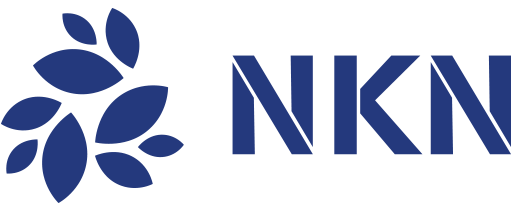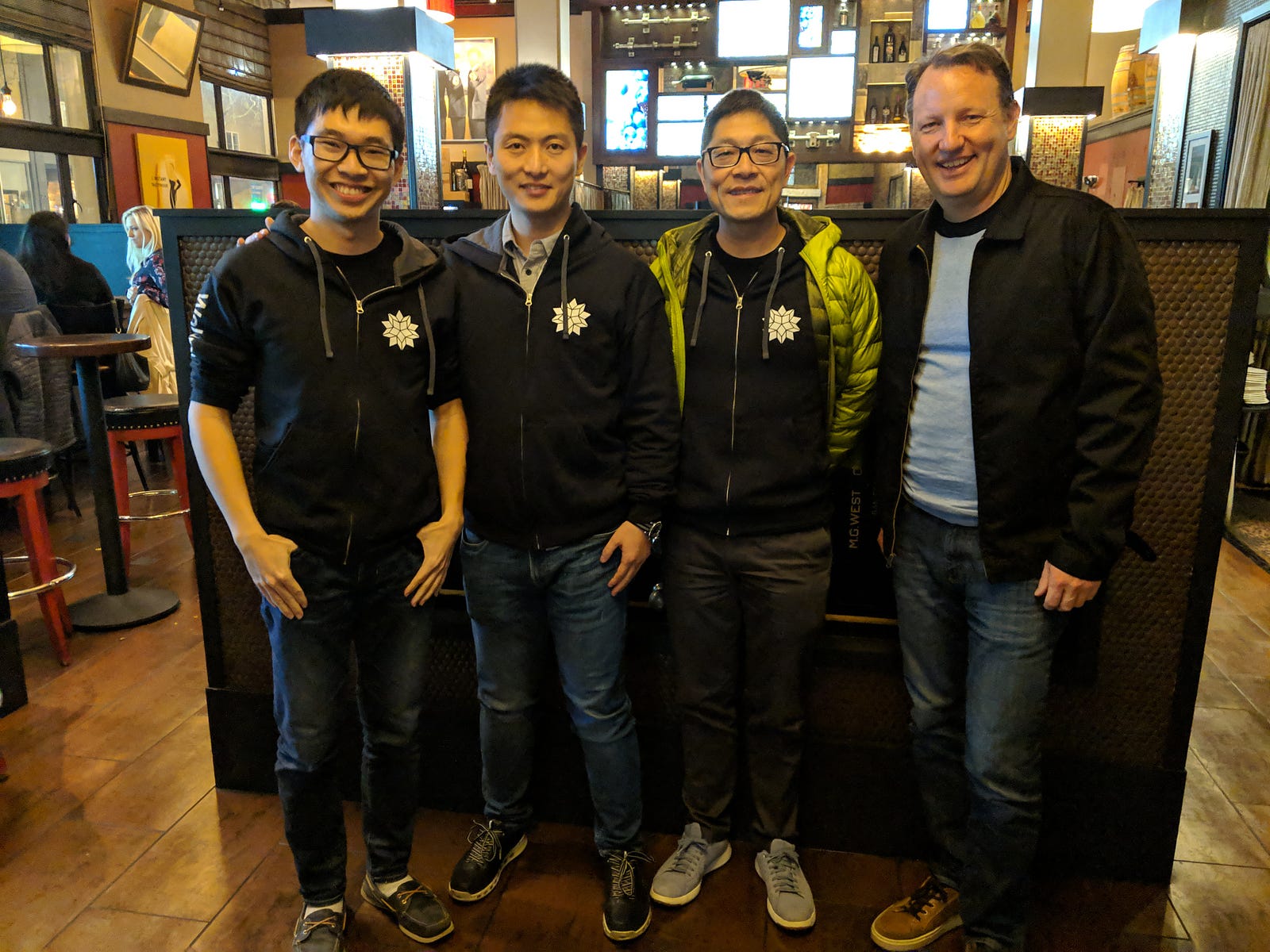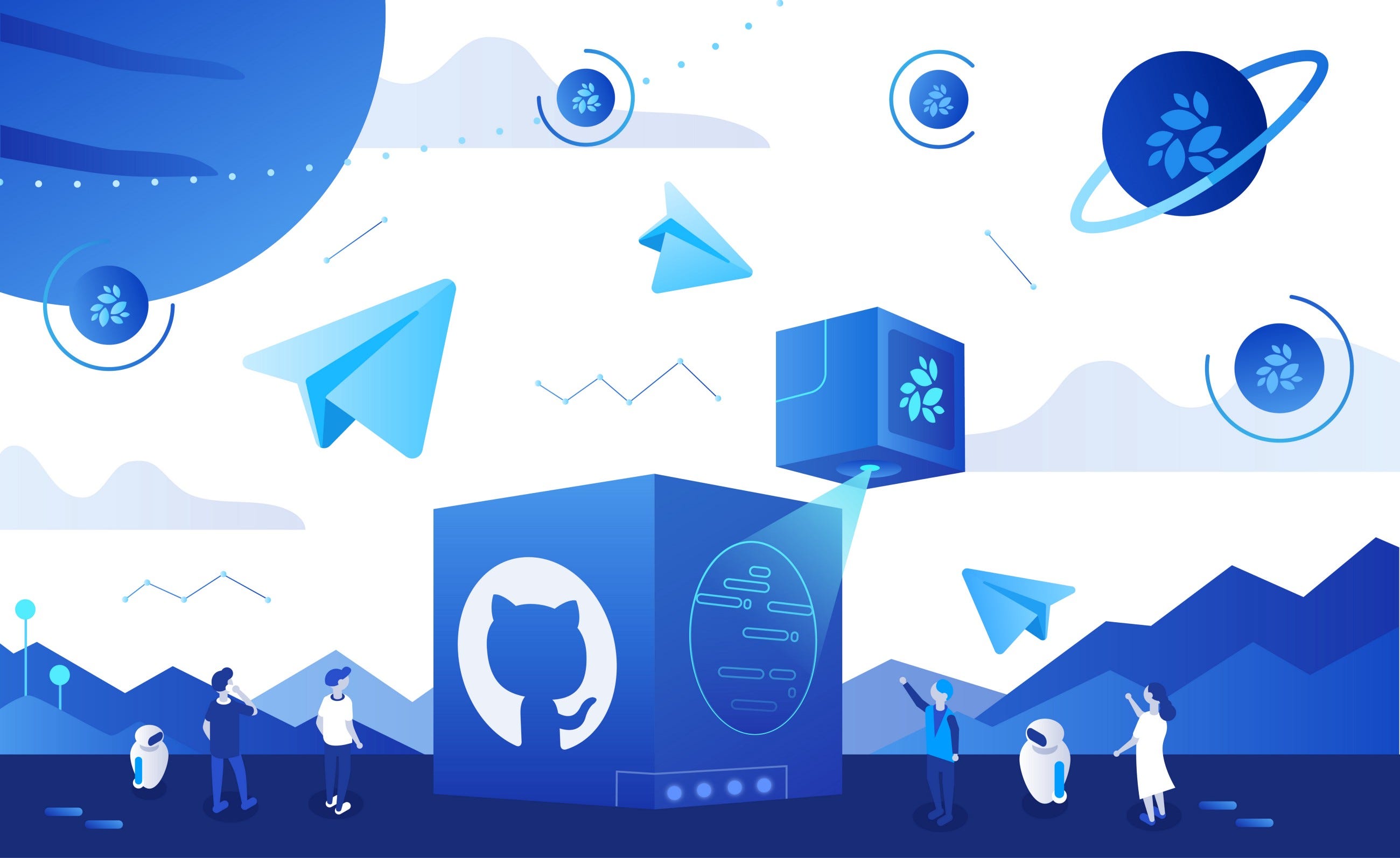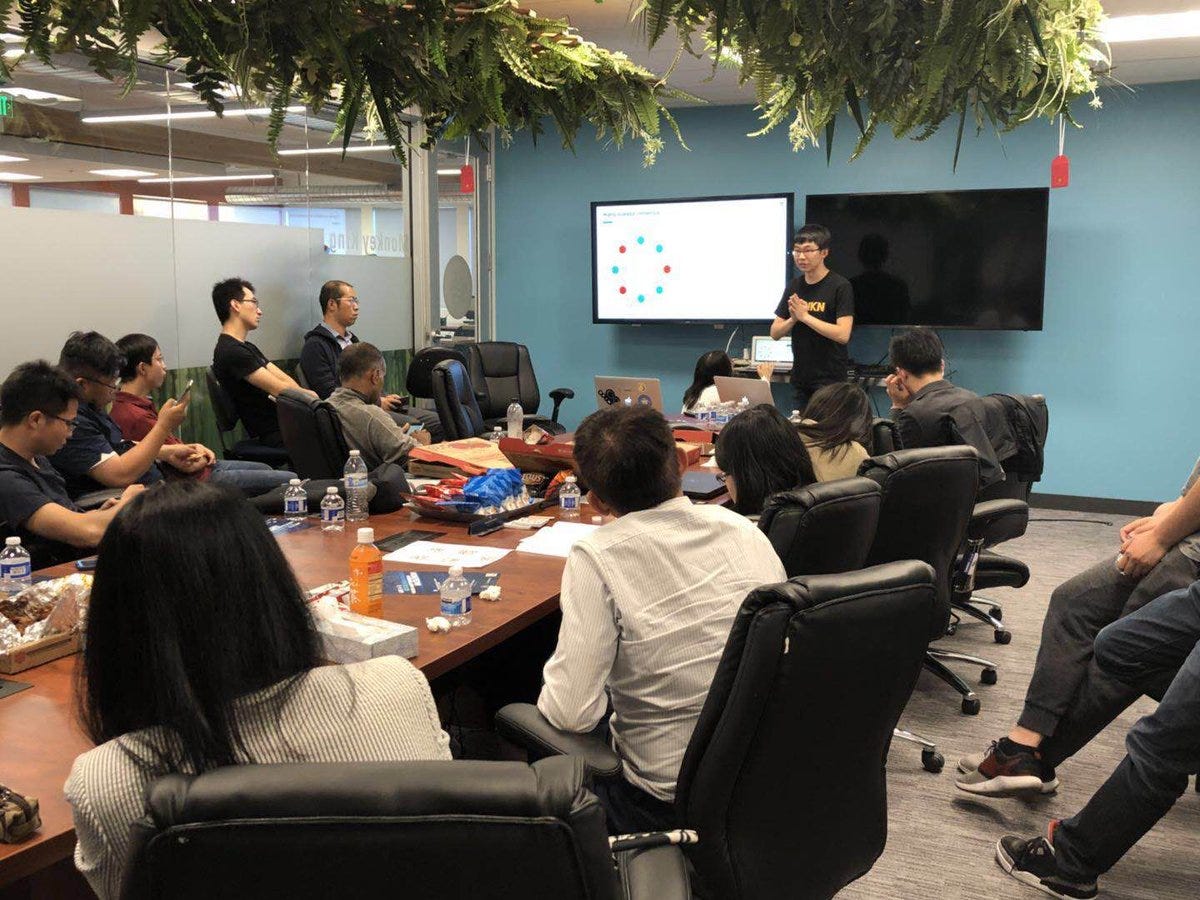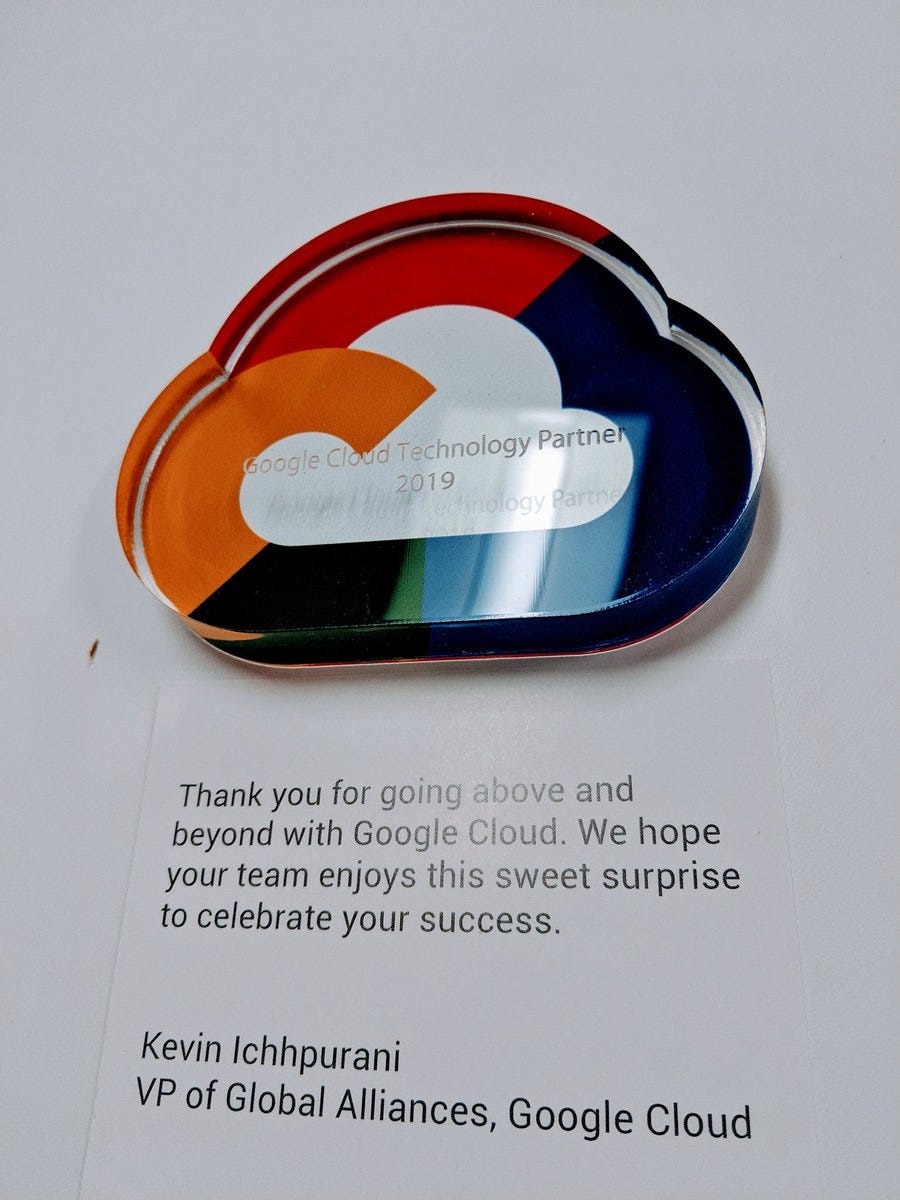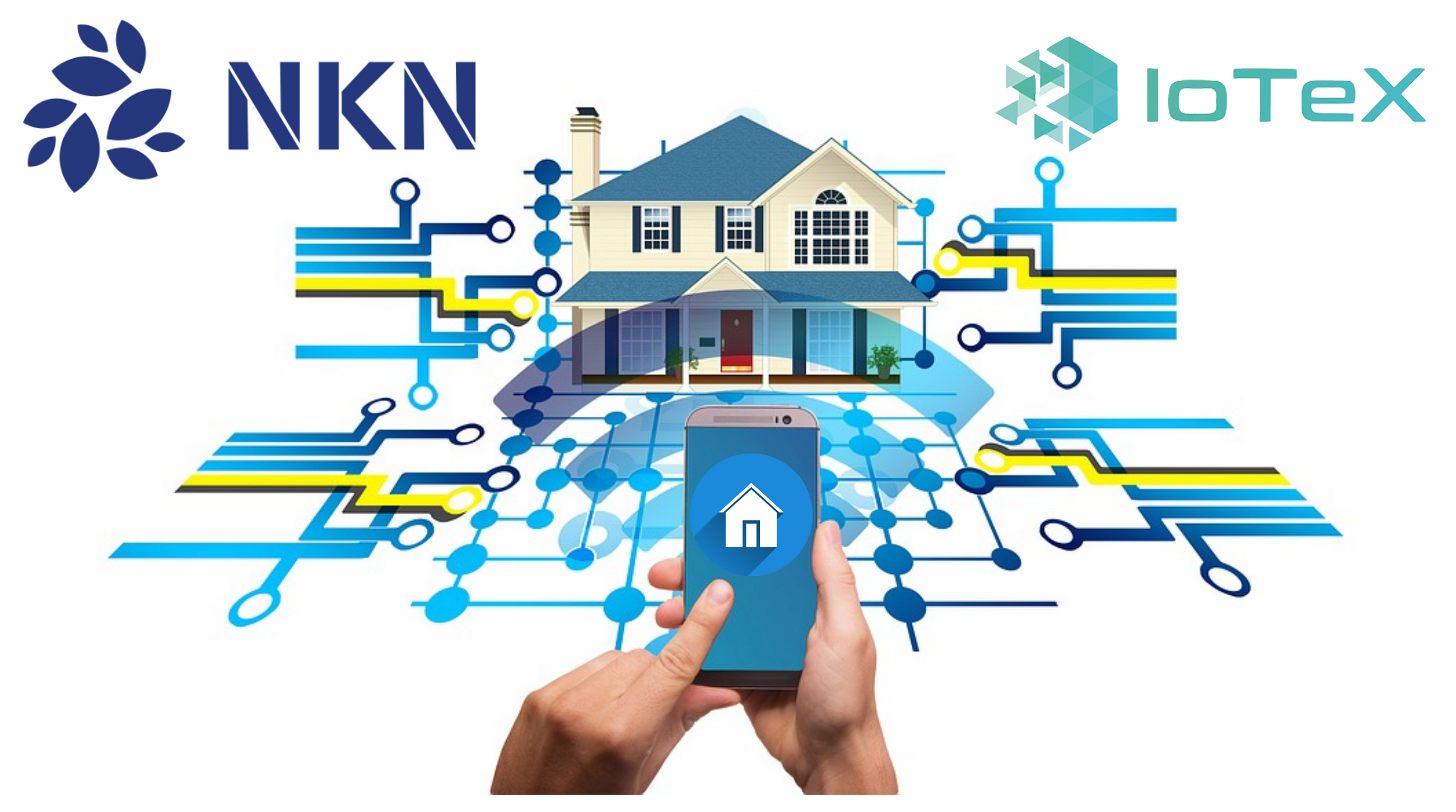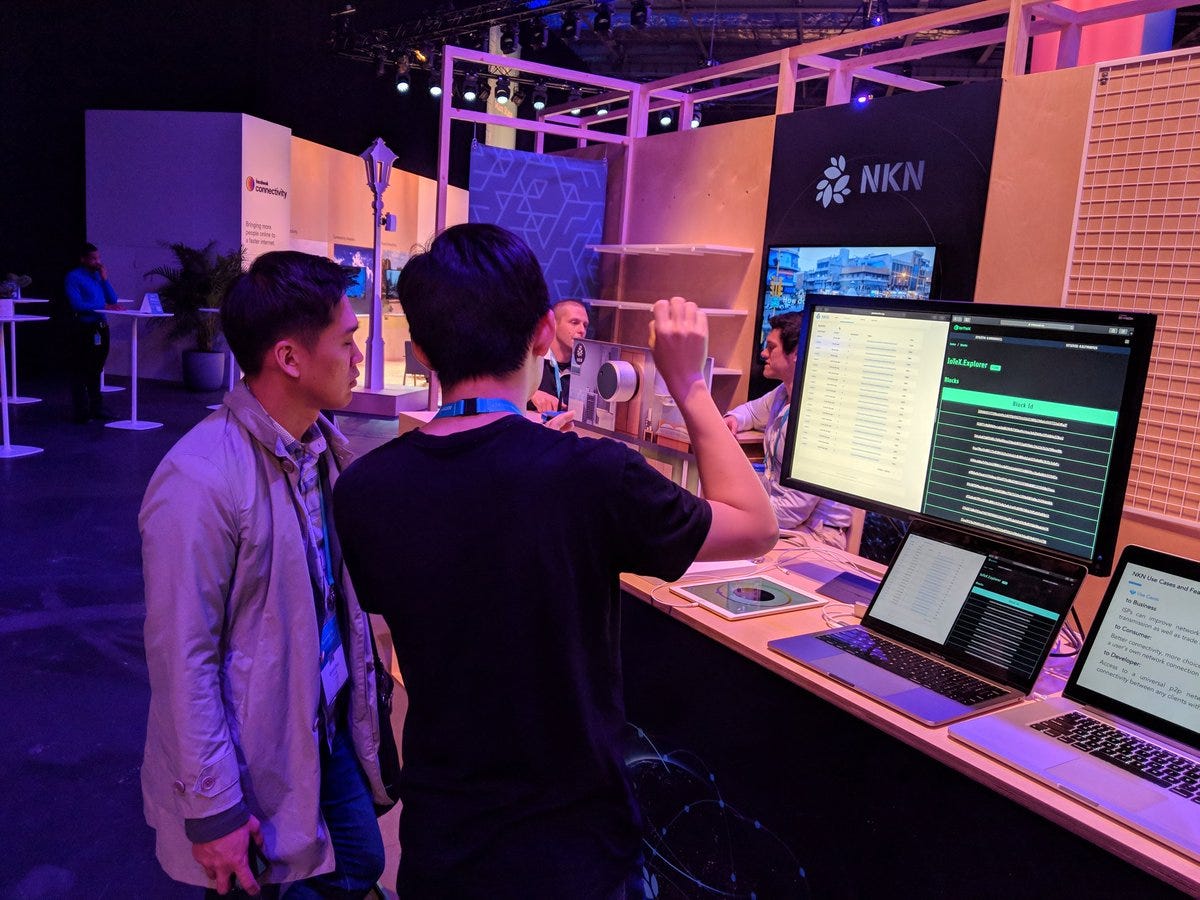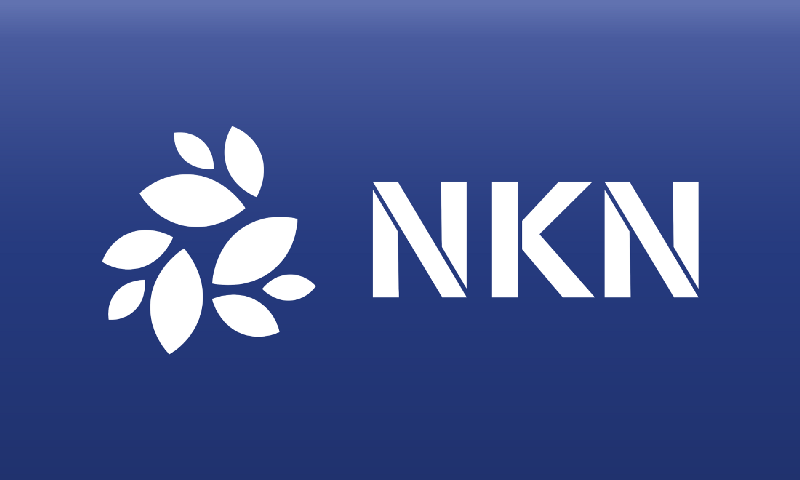
The original interview is here:
https://medium.com/@liluzivertcoin/interview-with-bruce-li-founder-and-co-ceo-nkn-58ba43d709a0
NKN is a new generation of highly scalable, self-evolving and self-incentivized blockchain network infrastructure. NKN tokenizes network connectivity and data transmission capacity by a novel and useful Proof of Work. NKN ultimately makes the network more decentralized, efficient, equalized, robust and secure, thus enabling healthier, safer, and more open Internet.
Hi Bruce. Thanks for joining me today. Can you tell us more about yourself and NKN?
Hi Uzi, great to be here! I’m Bruce, co-founder and co-CEO of NKN. I have been a bit of wanderer: educated in China and Australia, worked in Australia, Finland, and the US. Prior to NKN, I worked for Nokia and Google and specialize in technology and business innovations in telecommunications and software.
Now about NKN, which stands for New Kind of Network, is a peer to peer network connectivity protocol & ecosystem powered by a novel public blockchain.
We use economic incentives to motivate Internet users to share network connection and unused bandwidth.
A simple example: I have a mobile plan that features 50Mbps and includes 8GB of data per month, how can I share my under-used speed and unused data to others in need and earn some rewards in return? NKN can enable that both in technology and business model.
The NKN Core Team
How did you first break into the world of cryptocurrency?
Ilove disruptions in technology and business model. Since the Spring of 2017, I have been fascinated by blockchain and its tremendous potential, so I started learning everything about it. Our founder, Yanbo, was bitten by the crypto bug much earlier after joining NEO/OnChain. So by the end of 2017, we pretty much reached the same conclusion that this is exactly the right medicine for the telecom industry that is dying of complacency and lack of innovation.
What does a typical day look like working with NKN?
Since I’m mainly responsible for marketing and business operations in NKN, I start my day around 7AM to scan through everything on internal communications and social media that needs my immediate attention. Then I drive to our beautiful Silicon Valley office, and work on my priority actions in the morning, such as business agreements and original writing. During the day, I often go to business development meetings and calls with my colleague Allen, and technical deep dives with our CTO Yilun. In the afternoon, I do a bit of twitter plus community interactions on Telegram and Discord.
Late afternoon and evening are the busy time when our Beijing colleagues start working. Lots of internal discussions and work. I try to go to sleep before midnight, so I can stay fresh and sharp the next day.
Where are your current team members based? How do they collaborate with each other?
We have two main offices: a small one in Silicon Valley and a bigger one in Beijing. We use a variety of tools, but the most used are WeChat and Zoom video conference. There are not that many tools that work perfectly both in the US and China. Since we have a small team, our organization is entirely flat structure which opens up a lot of direct interaction across the company…
We have quite a few active community developers and helpers, who we collaborate primarily using Discord (and Telegram to lesser extent). They typically work autonomously, but we do frequent sync to ensure our efforts are aligned and competencies can be best shared.
Tell us about how the idea for NKN originated.
Yanbo and I have worked together for 8 years in two internal startups within Nokia. The first one was a mesh Wi-Fi product, while the second was a 4G LTE small cell. Then Yanbo joined NEO/OnChain as co-founder, while I moved to Google working on Project Fi.
Since 2015 Yanbo and I have been brainstorming using Fintech and later Blockchain to disrupt the Telecom business, which intensified in 2017 and resulted in the NKN concept. We met our future CTO Yilun in January 2018. He immediately saw the relationship between Cellular Automata and his work on computational neuroscience, and by then we knew we can actually build the concept.
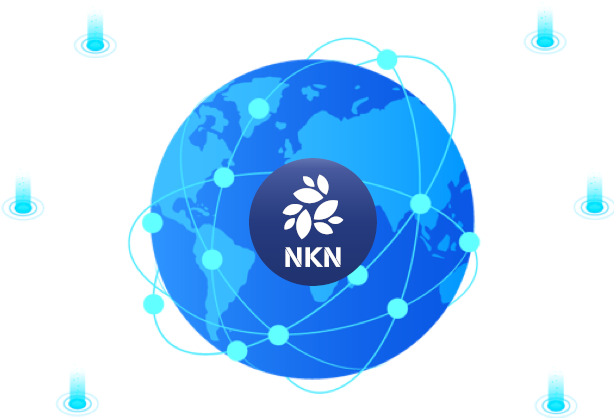
In the current cryptocurrency ecosystem with all the advances made, why do you think there is a gap for NKN to fill?
Two reasons:
-
We scales in a dimension (number of consensus nodes) different from 99% of other chains. 99% of chains focus on TPS (transactions per second), our unique contribution is our ability to scale to millions or billions of full consensus nodes while still maintaining high TPS (e.g. 10k TPS). We can use all the sharding and state channel technologies to further improve our TPS, but nobody can do 1 billion node consensus.
-
We are optimized for a vertical industry and use case (telecommunication network and Internet connectivity) . Telecommunications is a 1.4 trillion USD market! Even if we only migrate 1% of that business to NKN, we can shift 14 billion dollars worth of real-world revenue into crypto.
In the current cryptocurrency ecosystem with many projects trying to tackle the issues of privacy and censorship, what makes NKN stands out from the rest of the pack?
We have a few core contributions to privacy and security, but our goal is not total anonymity.
-
We enable direct peer to peer communication without any centralized servers, e.g. our D-Chat instant messaging application is built entirely on the client or app itself. n addition, our data transmission is off-chain and no user data is recorded on chain.
-
All our clients and nodes use public/private keys to sign the data they transmit, therefore we can enable not only end to end encryption but also hop by hop encryption . Best of all, we do not need to rely on Public Key Infrastructure (PKI) and centralized Certificate Authority (CA).
- We enable people to access the entire Internet outside of walled gardens, to all servers and services.
What do you think is the biggest problem NKN will solve and why is the problem important to solve?
The telecom network is designed for peak traffic, however, at any moment there are at least 50–60% capacity wasted . If you can share and use this ephemeral wasted capacity, you can make everyone’s connectivity better. NKN is like Uber for bandwidth, a 1.4 trillion dollar market.
Many of today’s large blockchains are sacrificing decentralization for the sake of performance . If you only allow 5–20 nodes to make consensus decision, then there is little difference from a centralized system and will lose all the revolutionary advantages of a truly decentralized system.
Can you give your opinion as to why a solution to this problem has only been covered by NKN? Why weren’t there any solutions before that could solve this problem? Do you think it was a matter of technology, or other forces preventing this?
Technology definitely plays a major role here: nobody has ever built a public blockchain that can scale to millions and billions of full consensus nodes, which is required for a telecommunication network.
If you only count humans, there are over 6 billion. If you count IoT devices, then there could be trillions. And we built it and made it work reliably. We did not just fork or modify from Ethereum or another existing chain. We looked around and could not find a solution for our telecommunication network use case, so we built it ourselves from ground up.
How long would it take an experienced developer to learn how to use NKN? Does NKN have an incentive policy for developers?
For an experienced developer, he only needs 5 minutes and 4 lines of code to develop an application based on NKN SDK. Our vision is that we support any developer, not just dApp developer. A developer who wants to design the decentralized Facebook app does not need to understand smart contracts or any blockchain technology in order to use NKN.
Better yet, developers do not need to acquire crypto tokens in order to use the NKN SDK. We removed this step for easier adoption. Our NKN network is already incentivized by mining economics, so developers can start using it for free.
We have bug bounty and developer rewards on a monthly basis, to incentivize the developers who produce the most deliverables and impact. Looking forward, our NKN foundation has a large reserve to stimulate the developer community after those tokens are unlocked.
What do you consider to be the biggest accomplishments with NKN to date?
Our technology is what we are most proud of. We have gone through 5 major releases of testnet since June 2018. Our testnet has been running stably with over 7,500 full consensus nodes globally, making NKN the 3rd largest blockchain by nodes. Only Bitcoin and Ethereum have more nodes. Our team is running less than 120 nodes, and 98% of our network is run by the community for full decentralization.
Inaddition, we have built a strong community of developers, holders, and miners . We have always believed in the open source community, separation of powers, and “checks and balances”. Our community developers have built beautiful wallets, blockchain explorer, miner portals, and applications (IM, games). Our token holders are very active in social media, promoting NKN and winning votes. Our miners have helped us build the biggest testnet to date.
Our business development has made strides as well. We are now a technology partner with both Google Cloud and DigitalOcean, and our 1-click full node software is officially approved and available on even more cloud platforms. We are one of the four founding members of web3infra.io alliance, which enables developers to build any application (not just dApps) over decentralized compute, storage, networking, CDN, name service, and other vital infrastructure.
NKN speaking with Google devs in a meetup in Palo Alto
Tell us more about the benefits of holding and using the NKN token and can you tell us more about the use cases the NKN token will have?
There are several use cases for NKN tokens:
-
Pay for relay: today it is free to spur adoption, but later the relayer and sender will agree on relay price based on free market and game theory.
-
Pay for services running on top of NKN network, e.g. web acceleration, video streaming, etc. We have already implemented but have not published details of our Publish/Subscribe function. This will enable everyone to run a micro-service (e.g. video streaming server) that is paid via NKN.
-
Reward the miners for running NKN nodes and building out NKN network
-
There are other enterprise use cases, such as international roaming and settlement for mobile carriers, smart city IoT, etc, that can use NKN data transmission network as well as the token economy.
The cryptocurrency world has seen extraordinary growth in 2017 and 2018, what have you learned in the last year that will inform NKN for 2019 and the years ahead?
Ifit seems too good to be true, it probably is… We had a crazy ride between 2017 and 2018, and we all learned a lesson or two. The tactics during crazy times, like pumping your token price by all those “fake news”, “pre-announcement of announcement”, “partnership”, “airdrop”, “bonus”, will have little or negative effect on the long term value of your token. We will continue to leverage the token economy and crypto network effect, but will double-down on the product creation and adoption.
We will strive to bridge crypto with real world economy, and channel revenue from the real world economy into the crypto industry, so we grow the crypto total pie, not just re-divide it.
NKN received this gift from Google as a valued technology partner
Can you tell us some of the goals you’re looking forward to accomplishing the most with NKN this year?
We have two main objectives for NKN in 2019: launch mainnet in June 2019 ; and build impactful adoption by end of 2019 .
Launching mainnet in June 2019 is well under way, and we have full confidence that we will deliver a top tier public blockchain on time.
However, building the best public blockchain is analogous to becoming the biggest fish in a fish tank. The real challenge arises when you have to swim in the ocean and compete with sharks (centralized platforms with real use case and best user experience).
Therefore to build impactful adoption by end of 2019 and beyond will soon become our main focus. We have product creation under way either by ourselves or with partners that truly leverage our high speed peer to peer network and massively scalable consensus: such as instant messaging, web acceleration, browser plug-in, video delivery, secure IoT, mobile roaming, and WiFi sharing. We hope to become the indispensable networking foundation for any application that needs to communicate.
Can you give us any details on any new partnerships for NKN?
Call us old fashioned, but the word “partnership” has been abused in crypto. We do not announce partnership until it is agreed bilaterally and can be published jointly with speakers on each side. And even more importantly, we tend to showcase joint prototype or products when announcing partnership.
We are working on partnership in several dimensions.
-
Partners who can use our platform to build their own products: examples are browsers who can integrate NKN technology as a plug-in for proxy, web acceleration, and content streaming.
-
Partners who can help us build our own products: we are working with other members of the web3infra.io alliance, to build a full stack for web 3.0 developers. We are evaluating new projects that want to join the web3infra alliance.
-
We build solutions for our partners: this is more an enterprise or B2B play. Examples are content streaming solutions in a p2p fashion for major telecom providers and content owners.
NKN partnered with IoTeX to enable the Smart Home for the Sharing Economy
What do you think is the biggest obstacle or challenge NKN will face? How do you plan to tackle that challenge?
I believe the biggest challenge for NKN in particular, and for crypto in general, is adoption.
Even big coins like Ethereum or XRP are struggling to crack it. For us, the key is to remain a specialist instead of a generalist, and focus on our vertical (p2p networking, bandwidth sharing, content streaming). This way, we can become the best in this vertical and build a meaningful business out of it.
Asecond obstacle is regulation: if we would like to transact real world business, we need the ability to receive and pay both fiat and cryptocurrencies. At least it is still very difficult in the US and China, two of the largest markets in the world.
The third problem is a potentially prolonged crypto winter, or macro economic downturn. We have the funds to survive, but the progress will be slower in a bear market.
How will NKN change the landscape of the cryptocurrency space in years to come?
We hope NKN can make significant contributions to both technology and business of the cryptocurrency space. Our core technology innovations, such as high efficiency p2p networking can benefit every public blockchain to improve TPS. In addition, our MOCA consensus algorithm that scales to millions or billions of nodes, can bring a new dimension to the blockchain scaling landscape.
But even more importantly, we intend to bring in fresh real world revenue into the crypto space.
Where do you and NKN see the world of blockchain being in years to come?
Ienvision a future where people will take decentralization for granted, nobody will even notice that blockchain is powering their everyday activities and the entire society, and humanity will move to a better place.
It is not entirely utopia. The last three decades have seen open source software (and hardware) bring about the most prolific and accelerated progress in technology, plus an extended economic prosperity. the next few decades we will see crypto networks and decentralization do the same thing to human economic interactions, on an even larger scale.
I’m bullish on the medium to long term impact of crypto, and will endeavor to build and safeguard it for the better (not worse) for all humanity.
Vitalik Buterin made a statement last year saying because large portions of the population have already heard of crypto, further growth of crypto must come from actual usage & people to shifting their efforts to real applications, and not bringing in more attention. Where do you and NKN stand on that statement?
It is true that most people have heard about crypto in the news, but very few have actually tried it out directly or indirectly. So I believe we still need continued marketing and education toward the general public. I tend to think the ICO craze of 2017–2018 was just the first wave, and a bigger hype wave (similar to the dot com bubble) is still in the making.
Tomake the bigger hype wave happen, we need to make a strong and unequivocal case for why decentralization and crypto are better for everyday applications. So we need to get to the next level of “blockchain and crypto everywhere”, even if people might not be using these directly or rather wrapped underneath fantastic applications they love and enjoy.
So yes, we need both FOMO and real adoption.
If people want to follow NKN, where should they go?
We have a lot of social channels, but here are the most active ones:
Home: https://nkn.org/
Twitter: https://twitter.com/NKN_ORG
Forum: https://forum.nkn.org
Medium: https://medium.com/nknetwork
Discord: https://discord.gg/yVCWmkC
Telegram: https://t.me/nknorg
Thank you again for all of your answers and taking the time to do this interview Bruce. Do you think there is anything you need to add?
Thanks you for doing this interview with NKN. Let’s work together to make the second and bigger crypto hype wave happen!
